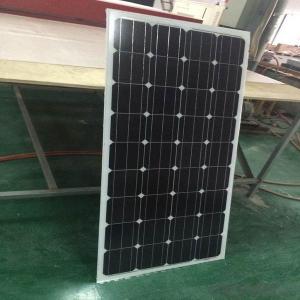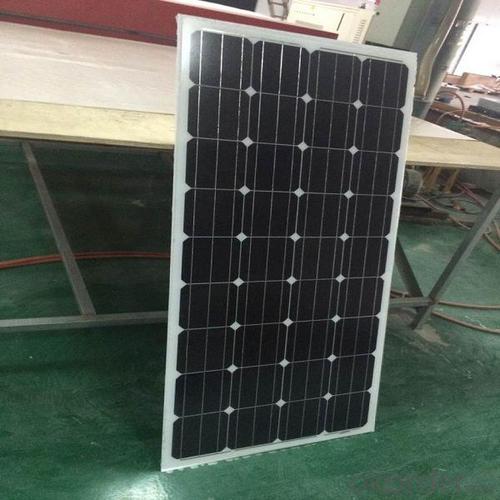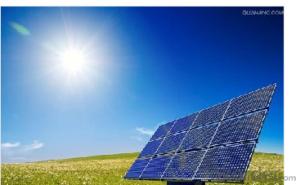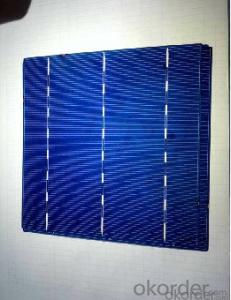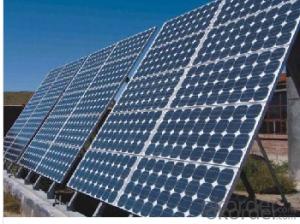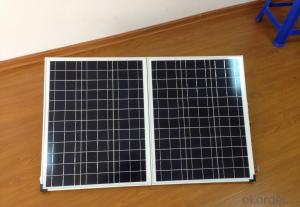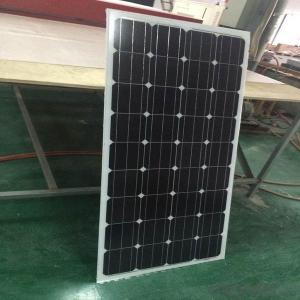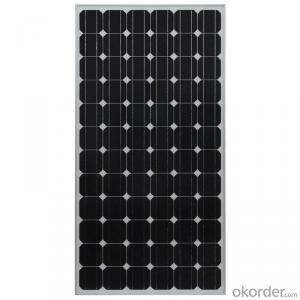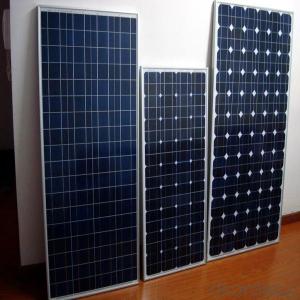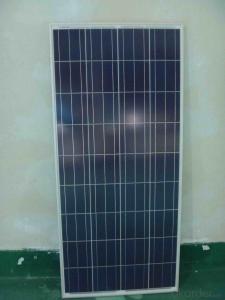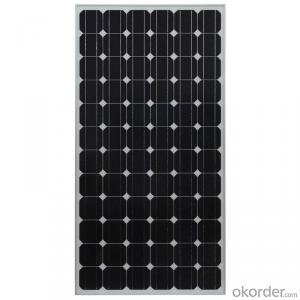Oklahoma Solar Panels - Mono 220W Solar Panels Made in China for Sale
- Loading Port:
- Shanghai
- Payment Terms:
- TT OR LC
- Min Order Qty:
- 10000 watt
- Supply Capability:
- 1000000 watt/month
OKorder Service Pledge
Quality Product, Order Online Tracking, Timely Delivery
OKorder Financial Service
Credit Rating, Credit Services, Credit Purchasing
You Might Also Like
Specification
Material:
Monocrystalline Silicon
Max. Power(W):
220
Number of Cells(pieces):
72
Product Description
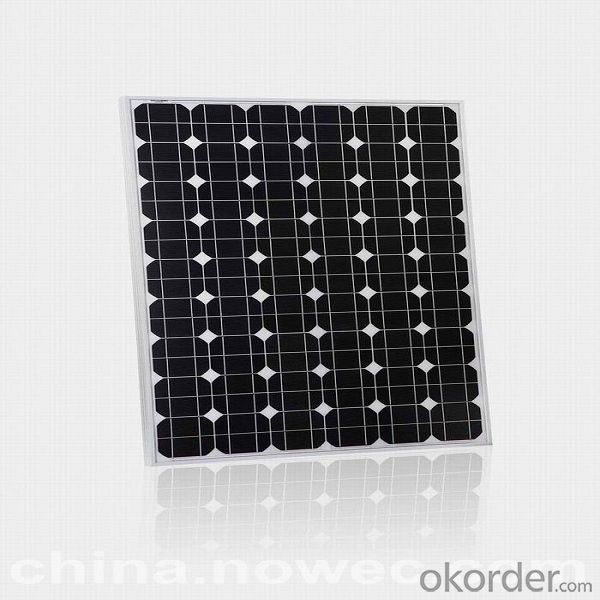
Specifications:
| Type of cell | mono |
| Max. power (Wp) | 180-220W |
| Max. power voltage (V) | 37V |
| Max. power current (A) | 5.5A |
| Open circuit voltage (V) | 44.6V |
| Short circuit current (A) | 6A |
| Number of cells (Pcs) | 72 |
| Size of module (mm) | 1580*808*35mm |
| Max. system voltage (V) | 1000 |
| Temperature coefficients of Isc (%) | + 0.1/ °C |
| Temperature coefficients of Voc (%) | -0.38/ °C |
| Temperature coefficients of Pm (%) | -0.47/ °C |
| Tolerance Wattage (e.g. +/-3%) | +/-3% |
| Surface Max. Load Capacity | 60m/s(200kg/sq.m) |
| Weight per piece (kg) | 16kg |
| Junction Box Type | 4m, length 1000MM,TUV |
| Connectors and Cables Type | MC4 |
| Output Cables (mm) | φ=4mm², L=900mm |
| Cell Efficiency (%) | ≥18.6% |
| Output tolerance (%) | +/-3% |
| Frame (Material, Corners, etc.) | Aluminum |
| Front Glass | 3.2mm high transmission, Low Iron, Tempered Glass |
| Warranty | 10Years products warranty and 25 years 80% of power |
| Standard Test Conditions | AM1.5 1000mW/cm2 25°C |
| FF (%) | 72% |
| Operating temperature ºC | -40 ºC ~+85 ºC |
Packaging:
2pcs/carton, 310pcs/20GP
Advantages
1.Long Service Life
2.High Efficiency Solar Cells
3.Special Aluminum Frame Design
4.High Transmission, Low Iron Tempered Glass
5.Advanced Cell Encapsulation
Solar Panel Application:
1. Solar power station, field operation some huge engineer construction;
2. Living house and home building;
3. Office building, factory and warehouse;
4. other industrial and commercial applications.
- Q: Can solar panels be used in hot climates?
- Yes, solar panels can be used in hot climates. In fact, solar panels often perform better in hot weather as they rely on sunlight, not heat, to generate electricity. However, it's important to consider factors like panel efficiency, temperature coefficients, and proper installation to maximize their effectiveness in hot regions.
- Q: Does anybody know if there are any courses for solar panel installation, and/or what trades you need for this position?
- If you are in the UK, then the Centre for Alternative Technology courses (CAT in Wales) have had some great feedback.. .. A lot of companies are actively recruiting and offer training courses as part of their induction. Have a look at the bigger ones recruiting near you.
- Q: Can solar panels be installed on a landfill or waste management site?
- Yes, solar panels can be installed on a landfill or waste management site. In fact, these sites are often seen as suitable locations for solar installations due to their large available space, minimal shading, and proximity to existing electrical infrastructure. Additionally, transforming these sites into solar farms helps repurpose and reclaim otherwise unused land while promoting sustainable energy generation.
- Q: I want to install a solar panel system and our power grid can't work in reverse(so it get its electricity from us). My question is how do you prevent electricity from our panel to go to the grid without disconnecting the grid? How can we also use the grid and the panel at the same time when the panel are not creating enough power?PS dont say ask an electrician
- If you are grid-tied, then a standard solar electric system will always feed back into the grid if you are not utilizing more power in your home than is being generated by the solar panels and inverter system. It is possible that a grid isolation device designed to prevent direct back feeding is available, but haven't heard of one in common use. New laws in most areas of the US are now mandating that utilities allow grid-tied alternative energy systems. Double-check you local laws. Sometimes you can't take the utilities word for truth--most will automatically say 'no' and will only relent when you show up with the law in hand. Unfortunately, some utilities have figured out another way to shut down alternative energy pioneers--they demand multimillion dollar insurance policies covering damage that their equipment could sustain from your little PV system. Technically, they are still in compliance with the law, they just make it impossible for a homeowner to meet their requirements. If you are getting the runaround, go to your state representative for help. It's amazing how contrite those utility people can be when a state senator (or even US Senator) has just sent a letter asking them why they are stonewalling a law-abiding and well-meaning citizen. Good luck, and don't give up!
- Q: I want to build solar panels for my house.Dose anyone try okorder is this really work?
- You cannot build solar panels. I believe what you want to do is build a solar system for your house. If you have a background in electrical system you could do it yourself. Otherwise you would be ahead to have professionals install the system for you.
- Q: Solar panel packages have different levels of power. For instance you can get a kw system but is this kw per hour or day. How does this work?
- kW is the unit of measurement used. kWh means you have kW steady for an entire hour. In the case of solar panels, say you are using 00W panels. That means at any given time assuming ample sunlight is hitting the panel, it is producing 00W. You wanted a kW so you will need ten panels at 00W (less or more depending on the rating of the panel) this will give you kW. That means at any given time you can get as many watts as needed up to kW (000W). Say the sun hits the panels for eight hours a day, you will have kWh each of those eight hours, or 8kWh per day. Unless you have a system of batteries to capture unused power, you will only be able to use up to kW (000W) at any given time, any unused power will be wasted. Solar panels alone are not like a generator, they do not slow down or speed up depending on demand. Even with no load on them, they will produce as much power as they are able, and without batteries that power is lost. To simply answer your question, if you get a kW system, that means kW per hour.
- Q: Can solar panels be used on boats or marine applications?
- Yes, solar panels can be used on boats or marine applications. In fact, they are becoming increasingly popular for providing renewable energy on board boats, yachts, and other marine vessels. Solar panels can generate electricity to power various onboard systems, including navigation equipment, lighting, refrigeration, and charging batteries. They are a sustainable and efficient way to harness solar energy while minimizing reliance on traditional fuel sources.
- Q: I am told there are night vision goggles to see at night due to invisible light still hitting earth. I am also told that there are other beams, x-rays etc hitting earth.Why couldn't they invent a solar panel with dual power in the day?It could harness both visible and invisible light, and at night be single?Anyone know why they can't make an invisible light solar panel?Is this possible?What happens if future cars have night vision windshields instead of lights?
- They are actually working on building photovoltaic panels (Photovoltaic is actually the correct term for sunlight--electricity. Ordinary solar panels are those that use sunlight to heat water) that harness a larger range of wavelengths. From what I can gather the problem is either finding a material that absorbs more wavelengths, or finding a way to get multiple materials to coexist in a single panel. This situation will no doubt improve over time as new things like Nanotechnology give us the ability to create much more complex substances designed at the molecular level for light capture. Panels that can harness a wider range of the spectrum do exist, but the technology is in its infancy, and therefore expensive and not widely known. This isn't too surprising when you consider that Photovoltaic technology itself hasn't been in the mainstream all that long. I am a bit doubtful of photovoltaics that work at night, for the simple reason that at night there is less of *every* kind of energy falling on earth. Less visible light, infrared, etc. Infrared just happens to be particularly good at giving away hot objects, which is how Night Vision goggles work. For the same reason, a night vision windshield might be a very useful tool, but it would still have difficulty picking out colder objects, and those that reflected less infrared light. In other words, you might see cars and pedestrians, but you could easily miss the upcoming embankment 0.o .
- Q: Home depot has solar panels but they are so expensive? were is the best place to get them?
- It okorder to locate a solar specialist in your area. Be sure to ask them about any state or local tax incentives for installing home solar. This can really drop your costs.
- Q: Can solar panels be installed on waste treatment plants?
- Yes, solar panels can be installed on waste treatment plants. In fact, waste treatment plants provide ample space and suitable infrastructure for the installation of solar panels. This can help offset the electricity consumption of the plant and reduce its carbon footprint, making it a sustainable and environmentally friendly option. Additionally, solar panels can contribute to cost savings by generating clean energy on-site.
Send your message to us
Oklahoma Solar Panels - Mono 220W Solar Panels Made in China for Sale
- Loading Port:
- Shanghai
- Payment Terms:
- TT OR LC
- Min Order Qty:
- 10000 watt
- Supply Capability:
- 1000000 watt/month
OKorder Service Pledge
Quality Product, Order Online Tracking, Timely Delivery
OKorder Financial Service
Credit Rating, Credit Services, Credit Purchasing
Similar products
Hot products
Hot Searches
